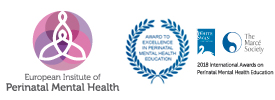 By Ana G Uriarte MD, child & adolescent psychiatrist and systemic therapist.
By Ana G Uriarte MD, child & adolescent psychiatrist and systemic therapist.
Love is the foundation of health – this is what I felt compelled to remember today.
I am not giving recommendations of “what to do” with babies, toddlers and children during these times. There are many, and many of the good, ideas going around already.
Babies and children feel the love of their parents. They are in closer contact with their instincts, their bodies and their emotions than we adults are.
Emotional language is spoken with our bodies. That is why children are not reached by words – it is our gaze, our smile, our laughter, the tone of our voice, the warmth of our hugs, the shared games, and the gentle containment when they are upset, that they understand. It is through this contact, night and day, that they perceive the sensibility and availability we express through our bodies.
We are our bodies, and we are the secure base from which they reach out to explore the world. If they perceive our stress, our disconnection, anger, irritability… their secure base tumbles and they express this with their bodies: yelling, whining, crying, and demanding. So anything that helps us to cope with our own stress in these difficult times will help us to care lovingly for our children – and we will all feel better, them and us. Our health and our childrens´ will improve.
Meditation, exercise, prayer, yoga, massage, painting, singing, whatever healthy activity helps you feel better – but why do it? To care for yourself, as a sign of your love for yourself, and out of love and respect for our infants and children.
When you achieve a certain calm – even if it is fleeting – you can focus your attention on the needs of your littles.
- Observe, unhurriedly enjoy their eyes, their face, their hands, their smile, their gestures…
- Use all your senses, your perceptions – what you smell, touch, hear: kiss and smell your baby, listen to your toddler babbling…
- Let yourself enjoy playing with him or her!
And when they dis-regulate (break down, yell, cry…):
- Remember: it is a privileged moment to get to know yourself and your child better. You will gain more capacity for self-regulation. If you care for them lovingly during these moments, both of you will acquire more strategies for self-regulation.
- How? Breathe deep to calm yourself, feel what you are feeling. Try to put yourself in your child´s skin and feel her emotions, then go back to your own skin and name your child´s feelings and needs. You might not totally understand what she needs, but just by trying to do so from a calm, loving perspective will change the situation.
- Later: understand what you felt – for instance, writing down what happened and what you felt might help you to better understand where your feelings were coming from, what part your own past plays in your reactions, what part exhaustion and stress and expectations and need for control play. This looking back and looking in will help us to take responsibility, to walk forward, to be good enough mothers and fathers.
- From a calm, conscious appraisal of the present moment, we will be in a better place to comfort our children, lower their unrest and figure out loving ways to walk beside them.
Infants and children have good strategies for signaling their distress, but their strategies to cope with it depend on their caregivers.
It is in the context of loving care where they learn the capacity to self-regulate. This takes time, years… But the more loving care we give, the more the child will grow in self-care capacity, and in the capacity to care for and cherish and ENJOY others!!
This is the most important task of humanity: to care and to love.
Photo by Jhon David on Unsplash







